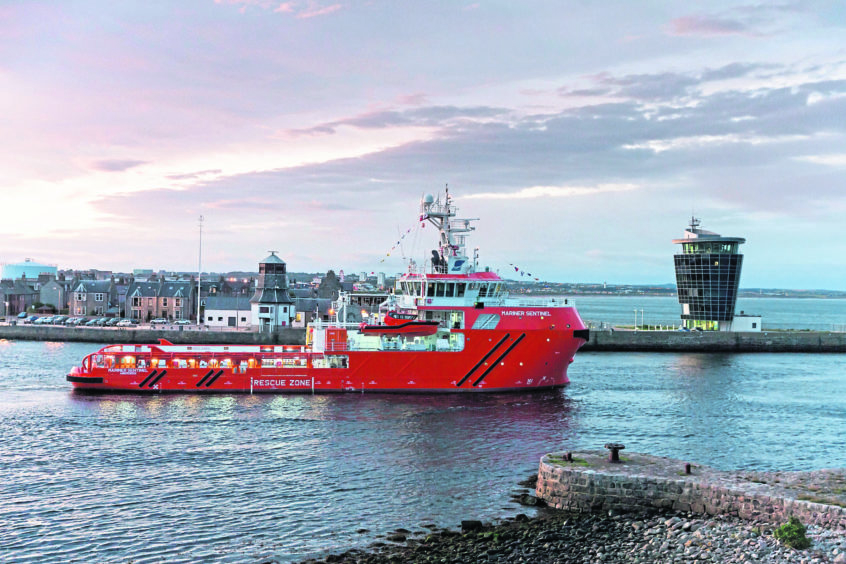
A north-east marine services firm is to increase staff by almost a quarter after a £150 million investment in a fleet of new emergency response and resuce vessels (ERRVs).
Sentinel Marine said they are introducing the newest fleet of ERRVs in the North Sea.
The average age of the Aberdeen-based firm’s ships is just two years, which means that, along with being one of the youngest in the sector, the fleet will also been cleaner and greener.
All eight ships, which will see the firm add to its staff by around 80 employees, are recently built to order by the firm.
Four are still under various stages of construction but when complete will have Tier 4 compliant engines which reduce emissions and noxious gases to near zero levels.
Sentinel Marine chief executive officer Rory Deans said: “Tier 4 engines reduce emissions by around 86% compared to other types of engines used in the marine environment.
“Our fleet is currently one of very few in the North Sea to utilise these. When we made this multi-million-pound investment, we not only wanted to deliver a fleet that would be operationally efficient, but one that would deliver positive environmental benefits.
“Although the real focus of Tier 4 engines is to reduce emissions, the overall design also incorporates many fuel saving technologies and features aimed at enhancing productivity. Manufacturers use lightweight materials, advanced energy storage, and global positioning and telematics to reduce fuel costs and conserve energy.
“Historically, ERRVs operating in North Sea oilfields were originally built for use in other sectors and then repurposed as support vessels. Many of these ships are now decades old and while still perfectly capable of performing a support role, cannot deliver the same kind of efficiencies.
“It’s estimated that our fleet is around 60% more fuel efficient that some of the oldest ERRVs in the North Sea, and as much as 30% more efficient than vessels that were built only five years ago. For example, one of our new-build ERRVs would consume around 1.5t of fuel per day on service at an offshore field whereas a vessel 20 years old may consume 3t of fuel per day.”
The new Sentinel Marine fleet has been built at shipyards in China. Each vessel has a green passport – a list of all materials potentially hazardous to human health and the environment which were used in its construction – which accompanies that vessel through the lifetime of its service.
When the ship is decommissioned, the passport is sent along with the ship to the recycling yard.
Another key element which delivers efficiencies is the ability of the ships to perform a multitude of different roles.
While the primary function of ERRVs is to protect the lives of offshore workers, Sentinel Marine ships are built to undertake a wide range of additional tasks from oil recovery to towing and on to cargo handling.
Recommended for you
